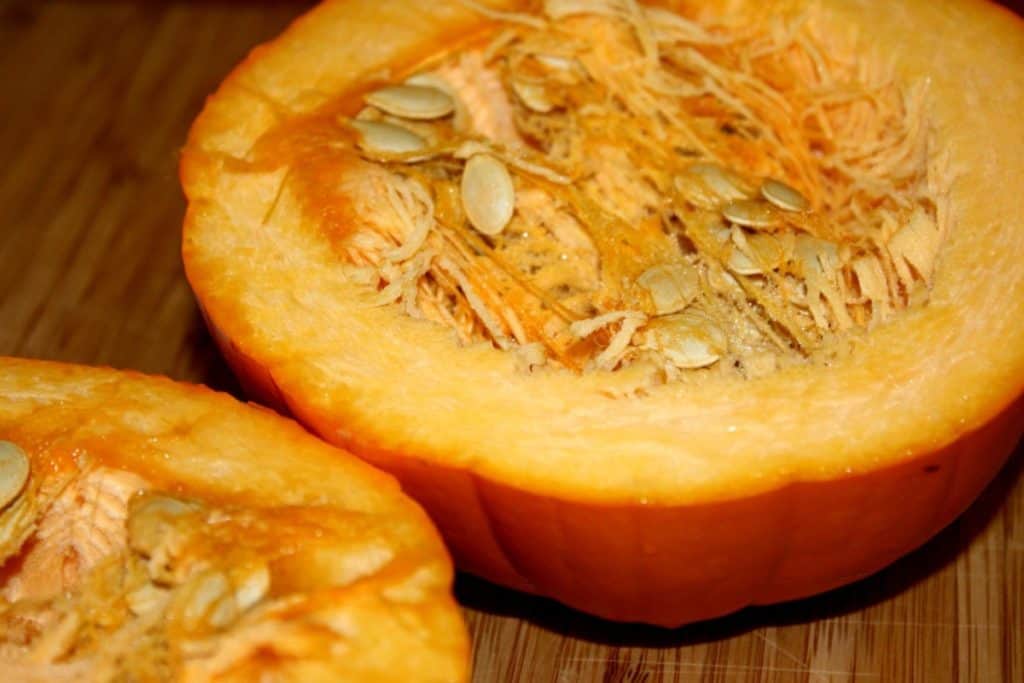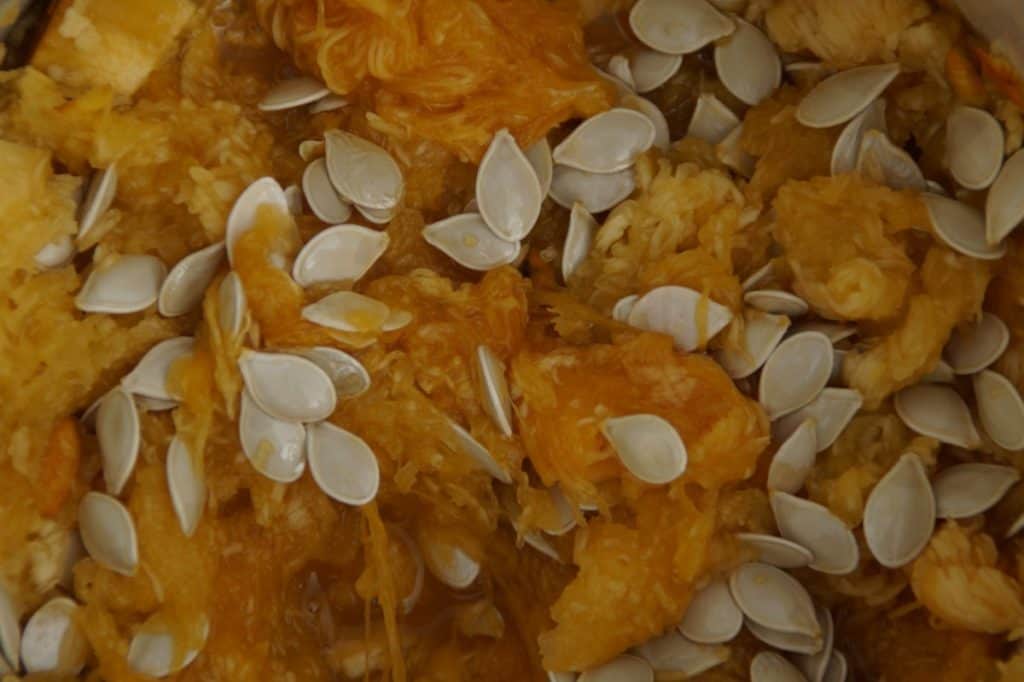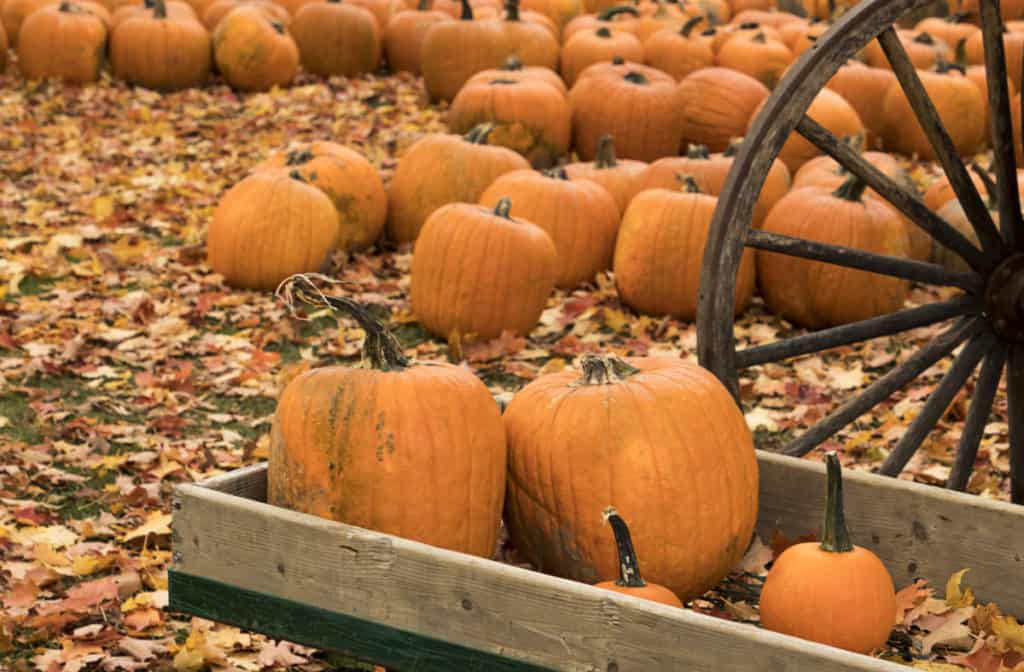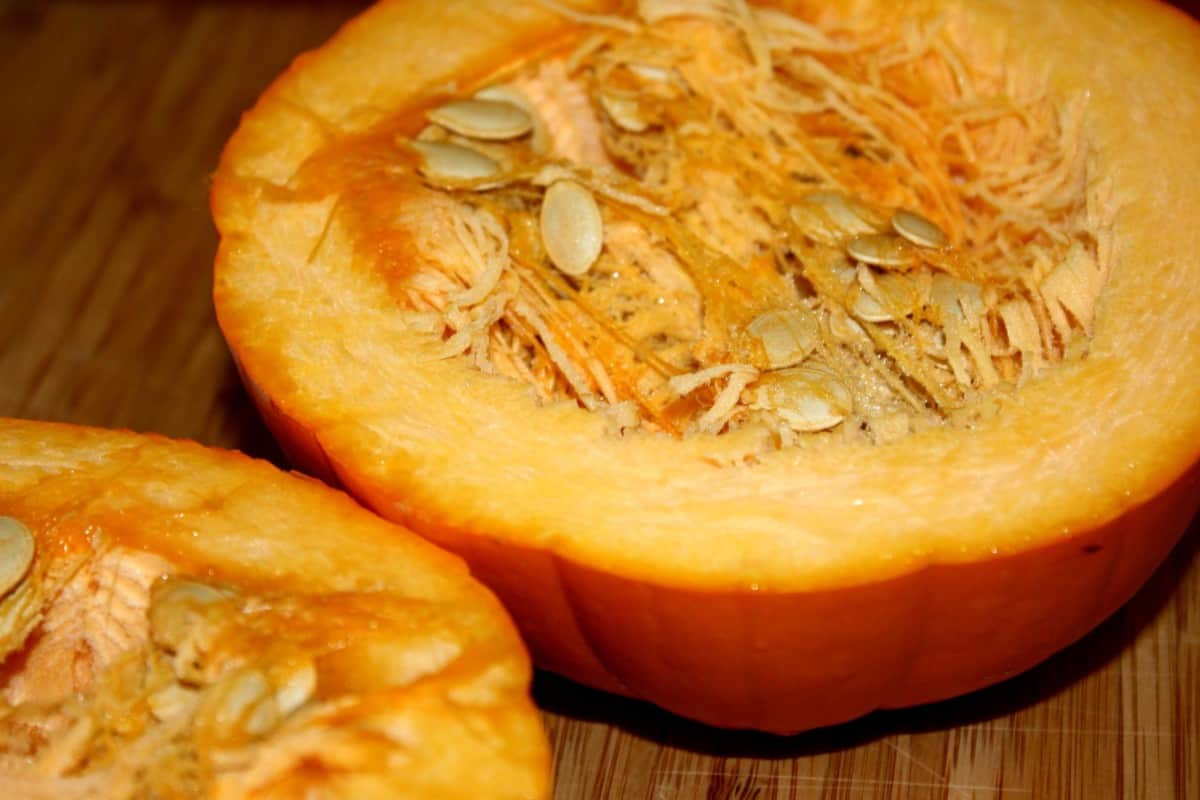
If you have leftover pumpkins after Halloween or from a fall festival pumpkin patch there is something you can do with them.
You can feed them to your backyard chickens!
Can chickens can eat pumpkin guts and seeds? Yes, chickens can eat pumpkin guts and seeds. Pumpkins are a part of the Cucurbitaceae, the gourd family of flowering plants. The pumpkin flesh contains important nutrients including beta-carotene, vitamin E, vitamin C, and vitamin B2. Chickens enjoy eating the flesh, seeds, and stringy guts of a pumpkin.
Chickens will also eat the skin of a pumpkin if chopped up into smaller pieces. Pumpkin seeds contain 30% protein content which is a nice treat for molting chickens.
If you are going to feed your chickens pumpkin. Make sure you feed the pumpkin to chickens before the pumpkin begins to rot. You should never feed your chickens rotting food of any kind.
What are the nutritional benefits of pumpkin for chickens?
Pumpkin contains the following vitamins and minerals that are beneficial to chickens.
- Beta-carotene: Pumpkins contain large amounts of beta-carotene. Chickens convert beta-carotene to vitamin A. Vitamin A is important for a chicken’s mucous-producing glands to function properly. These glands are in the nose, eyelids, and lining of the esophagus. Baby chicks can even die if they don’t have the right amount of vitamin A in their diet.
- Vitamin E: Vitamin E helps protect chickens against Newcastle disease. Vitamin E also aids in improved reproduction and growth in chickens.
- Vitamin C: Chickens can make their own vitamin C. However, vitamin C is helpful when your chickens are experiencing heat stress during hot weather.
- Vitamin B2: Riboflavin (Vitamin B2) is vital for baby chicks. Without the right amounts of this vitamin, baby chicks will undergo paralysis, their toes will curl, and they will be unable to move. A lack of B2 also leads to poor growth and egg production.
- Potassium: Research shows that potassium reduces the effects of high temperatures (hot weather) by maintaining the water and electrolyte balance. Potassium also helps increase water intake in chickens.
- Manganese: Manganese plays a vital role in eggshell quality, bone development, growth, and the overall health of chickens.
- Cooper: Cooper supplementation is added to broiler chickens’ diets to increase growth performance.
- Iron: Iron is important to prevent anemia and a weakened immune system in chickens.

Can chickens eat pumpkin seeds?
Chickens can eat pumpkin seeds. Pumpkin seeds contain 30% protein content. This is an excellent treat to feed your chickens when they are molting.
Molting chickens need extra protein to create new feathers. Pumpkin seeds also contain calcium which is important in eggshell quality.
Zinc is also found in pumpkin seeds. Zinc is important as your chickens grow. Without the right amount of zinc your chickens could have bone deformations and stunted growth.
It is safe for your backyard chickens can eat raw or dried pumpkin seeds.

Can chickens eat pumpkin skin?
Chickens can eat pumpkin skin. The skin of the pumpkin contains many beneficial nutrients for chickens. You should break up the pumpkin skin into smaller pieces that your chickens can then consume.
Can chickens eat pumpkin pie?
You should not feed your chickens pumpkin pie. Typically, canned pumpkin used to make pumpkin pie contains many fillers, sugars, and spices that are not healthy for your chickens.
If you are making the pie yourself with no artificial fillings it should be ok for your chickens.
How to feed pumpkin to chickens?
Cut the pumpkin in half and then cut the half pieces one more time to make a total of four pieces. Then put the pumpkin pieces out for your chickens to enjoy.
Here is a video of chickens eating pumpkin.
Do pumpkin seeds deworm chickens?
There is no scientific evidence that pumpkin seeds act as dewormers for chickens or other birds. There is research that pumpkin seeds contain anthelminthic properties (ability to expel worms) in humans.
This research however does not mean it would have the same effect on removing worms from a chicken’s gastrointestinal tract.
If you wish to read further research this article found here is a good source of information.
Conclusion
Its clear chickens can eat pumpkin guts. The pumpkins stringy guts, flesh, skin, and seeds are a healthy source of nutrients for your flock. As with any treat feed it you your backyard chickens in small quantities.

